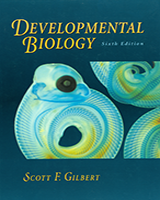Excerpt
Developmental biology is a great field for scientists who want to integrate different levels of biology. We can take a problem and study it on the molecular and chemical levels (e.g., How are globin genes transcribed, and how do the factors activating their transcription interact with one another on the DNA?), on the cellular and tissue levels (Which cells are able to make globin, and how does globin mRNA leave the nucleus?), on the organ and organ system levels (How do the capillaries form in each tissue, and how are they instructed to branch and connect?), and even at the ecological and evolutionary levels (How do differences in globin gene activation enable oxygen to flow from mother to fetus, and how do environmental factors trigger the differentiation of more red blood cells?).
Developmental biology is one of the fastest growing and most exciting fields in biology, creating a framework that integrates molecular biology, physiology, cell biology, anatomy, cancer research, neurobiology, immunology, ecology, and evolutionary biology. The study of development has become essential for understanding any other area of biology.



No comments:
Post a Comment